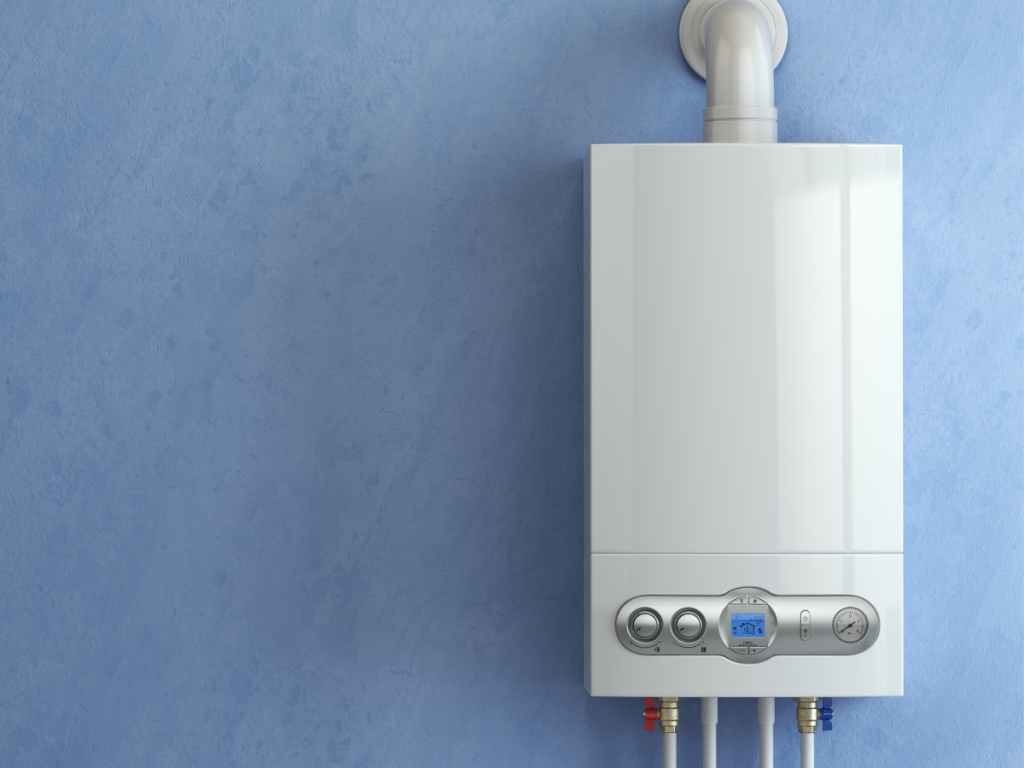Hot water may not be the first thing on your mind until you don’t have any! A boiler is an integral component of any home, knowing how long it will last you and how you can take care of it can help save your precious time and money.
Just as the name suggests, these systems heat up water so that it can be distributed throughout your home to radiators, baseboards and underfloor heating systems for warmth and convenience.
However, like anything, water boilers only last so long and should be maintained frequently to avoid costly wear and tear and minimize replacements. So, how long does a boiler last? In this guide, we’ll cover the answer to this question, go over factors affecting lifespan, and provide a few tips to help you keep your system up and running.
How long does a boiler last?
The lifespan of a boiler system depends on a few factors, including:
- Quality
- Usage
- Maintenance
The average life of a boiler is around 10-15 years. This can vary, however, depending on how well they are maintained and the frequency of use.
Here’s a list of factors affecting a boiler’s longevity:
Boiler type
Gas, oil, electric, and tankless boilers have their list of advantages and disadvantages and differing lifespans as well. For instance, a gas boiler may work better in colder climates than an electric boiler; however, they also need more maintenance.
Oil boilers typically outlive gas boilers but are more costly to run and require more space to store them. Tankless boilers offer convenience with regard to space but come with higher upfront costs and may become inconsistent if multiple outlets are used simultaneously.
Boiler quality
Quality refers to the design, materials, and craftsmanship used in creating your boiler unit. The higher its quality is, the fewer defects and maintenance issues you will likely encounter. Often, higher-quality units also come equipped with better warranties so as to help save you money on repairs and replacements.
Boiler usage
Boiler life expectancy is also affected by how often it’s used. The more often you keep your system running, the more natural wear and tear and the faster it will wear out.
However, this doesn’t mean that leaving your boiler idle and unused is good for the health of your system. If left idle too long, your boiler may begin to form rust and build up sediment, which can damage your system and reduce its efficiency. Use your boiler when you need it and shut it off when it’s not in use.
Boiler maintenance
When customers ask us, “How long should a boiler last?” we ask them how often they have professional maintenance. Regularly scheduled maintenance on your boiler is a great way to lengthen its lifespan and keep it running smoothly and efficiently.
Our licensed plumbers here at Plumb-Tech will ensure your unit is running properly and can detect small issues before they become major problems, saving you time and money from any damages. We recommend having all of your plumbing checked at least once per year to avoid unexpected problems.
Helpful tips to extend your boiler’s lifespan
Now that we’ve gone over the factors affecting lifespan, here are a few tips on how to keep your system running in good condition.
Check the components
Every so often, whether that be weekly or monthly, give your boiler a quick visual check to ensure everything is in working order. Check all gauges, filters, burners, and any other critical components to the functionality of your unit.
Not sure what to look for? Ask your local plumber what you should keep an eye out for when inspecting your boiler.
Tune your burner
As the seasons change, it is important to keep your boilers burner tuned up so that it can keep running the best it can. Tuning your burner helps to match the fuel type, quality, and quantity, and also the combustion air supply and demand.
Have a licensed plumber tune your burner to help improve efficiency, reduce emissions, and possibly extend your unit’s lifespan. We recommend having your burner tuned annually, preferably before winter, when your boiler will be used more heavily.
Insulate your boiler
If your unit is frequently having issues, and you’re constantly asking yourself, “How long does a boiler last?” it might be time to consider an upgrade. By adding insulation to your boiler, you can reduce the large amount of heat that escapes from the system, lowering your fuel and heating costs and consumption.
Insulation also protects your boiler and pipes if insulated from freezing, corrosion, and condensation, all of which can shorten the lifespan of your unit and cause unnecessary damage. When buying insulation, consider the type that best suits your boiler.
You can choose from different materials such as fiberglass, foam, or mineral wool. The size, shape, and location of your system will be the deciding factor for which type you go with.
Replace your boiler
Sometimes the best option is to replace your boiler altogether. If your current boiler is frequently breaking down and causing you grief, talk to your plumber about upgrading to a new unit, or switching heating systems completely.
This may seem like an extensive and costly task but in the long run, a new boiler will prove more efficient, reliable, and eco-friendly. Over time, the savings will far outweigh the upfront cost of buying a new unit.
If you need a new boiler, let the pros at Plumb-Tech help.
A water boiler is a crucial appliance in many homes. We hope this has been a helpful guide on the ins and outs of your system and how to take care of it.
If you have any questions or concerns about your boiler system and its lifespan, reach out to us at Plumb-Tech, and we will get you set in the right direction, and help you with any issues you may have.
Contact us today to get started!

